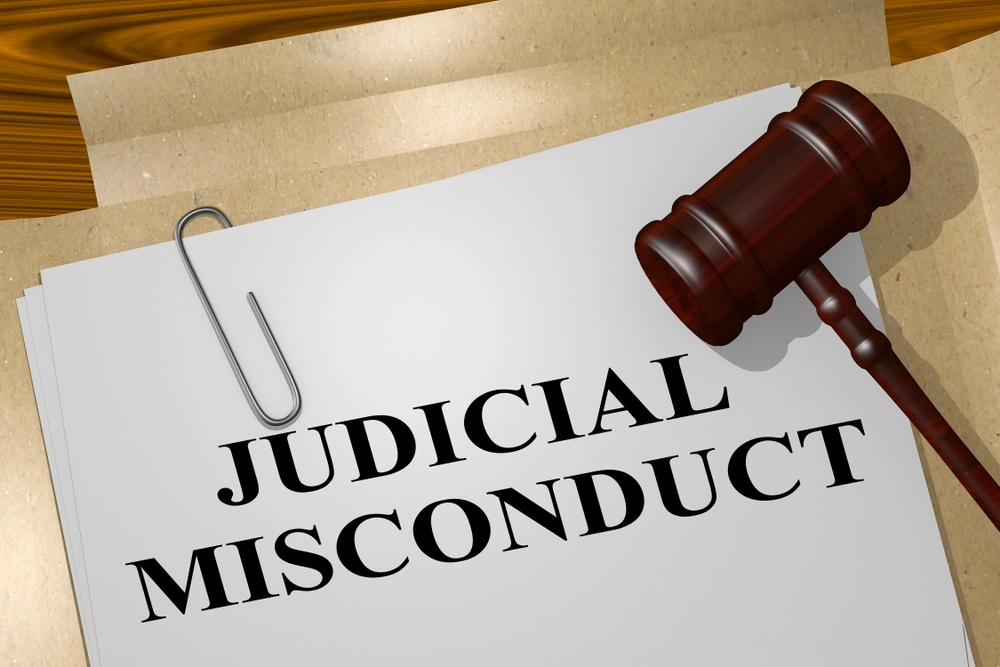Sen. Coons Asking About Workplace Conduct in Nominees' Questions for the Record
 Judicial nomination hearings are often rapid-fire events where members of the Senate Judiciary Committee barely have enough time to get out a complete thought, let alone ask a comprehensive line of questioning.
Judicial nomination hearings are often rapid-fire events where members of the Senate Judiciary Committee barely have enough time to get out a complete thought, let alone ask a comprehensive line of questioning.
Luckily, there are two additional parts to the nomination process: first, a Senate Judiciary Questionnaire that all nominees must fill out prior to their hearing; and second, any senator on the Committee can send Questions for the Record to the nominee after their hearing, with the expectation that they’ll be answered (albeit not always in a satisfactory manner).
There’s been a positive development on the latter front: Sen. Chris Coons is asking questions about workplace conduct in the QFRs. This comes as a series of news reports, court filings, national surveys and misconduct orders this year show that the endemic problems of harassment, retaliation and discrimination in the third branch aren’t going away.
Below, we go nominee by nominee for three QFRs and highlight the more worrisome answers.
Nominee Ed Artau | Full Artau QFR
Current position / nominated position: Florida appeals court judge / S.D. Fla. judge
Summary: Judge Artau’s answers on workplace conduct show he believes he can solve the problems related to workplace conduct himself, which is quite the red flag (what if he’s the problem?), e.g., “I would require that any concerns be reported to me…” (25b), and “I would investigate the matter and take prompt and appropriate action…” (25c). That’s not how the process works; there are chief judges, the OJI and DWR, EDR coordinators, HR, etc.
Even if Artau and the others below aren’t familiar with, say, the EDR process, the fact that they didn’t bother to look it up to better answer the questions is concerning, both in terms of respecting the SJC’s QFR process and regarding their own curiosity about how workplace conduct issues are to be handled should they be confirmed.
Verbatims:
25a. If confirmed, what proactive steps would you take to ensure that the clerks and judicial assistants who work in your chambers are treated with respect and are not subject to misconduct?
Response: I would hold regular training for my Chambers to ensure that anyone working in my Chambers complies with high ethical, moral and legal standards.
25b. What proactive steps would you take to ensure that any workplace-related concerns that your clerks and judicial assistants may have are fully addressed?
Response: I would require that any concerns be reported to me so they could be immediately and properly addressed.
25c. If you are confirmed and you later hear from a colleague or your chambers staff that another judge is acting inappropriately, what steps would you take to help ensure the problem is addressed?
Response: I would investigate the matter and take prompt and appropriate action to rectify the matter.
Nominee Anne-Leigh Gaylord Moe | Full Moe QFR
Current position / nominated position: Florida appeals court judge / M.D. Fla. judge
Summary: Judge Moe can’t answer a basic question on how to handle inappropriate behavior (24c), and she can’t recall if she’s attended workplace conduct trainings during the eight years she’s been a judge (26).
Verbatims:
24c. If you are confirmed and you later hear from a colleague or your chambers staff that another judge is acting inappropriately, what steps would you take to help ensure the problem is addressed?
Response: It is impossible to answer that question in the abstract.
26. Have you participated in any workplace conduct training sessions conducted by your court, your circuit or other judiciary personnel? If so, please briefly describe the curriculum and note how many times you’ve participated in these sessions.
Response: I cannot recall whether I have attended such programs as a judge, but I certainly attended and even presented such programs as a practicing attorney.
Nominee Jordan Pratt | Full Pratt QFR
Current position / nominated position: Florida appeals court judge / M.D. Fla. judge
Summary: Judge Pratt offers a vague “would…tak[e] whatever action(s) the circumstances warrant” when hearing about workplace misconduct (26c), and he can’t recall the workplace conduct training(s) he’s attended since joining the bench in 2023 (28).
Verbatims:
26c. If you are confirmed and you later hear from a colleague or your chambers staff that another judge is acting inappropriately, what steps would you take to help ensure the problem is addressed?
Response: As a general matter, I would consider taking whatever action(s) the circumstances warrant, keeping in mind the seriousness and credibility of the allegations and the privacy of the individuals concerned.
28. Have you participated in any workplace conduct training sessions conducted by your court, your circuit or other judiciary personnel? If so, please briefly describe the curriculum and note how many times you’ve participated in these sessions.
Response: I do not recall with particularity the curriculum of the trainings that I attended when I joined my court and when I clerked in the federal judiciary. Every year, the conference of Florida district court of appeal judges hosts an education conference, and I believe that the event typically includes at least one judicial ethics session. I have attended each annual education conference during my time on the Fifth District Court of Appeal.
Fix the Court in its ~11 years has never taken a position on whether the Senate should or shouldn’t confirm a judicial nominee, though we did FOIA the DOJ for documents written by potential and actual nominees of three then-presidential candidates (Clinton, Trump and Biden) and did ask that then-Majority Leader McConnell slow down one confirmation (Justin Walker to the D.C. Circuit) after we uncovered some ethics issues.